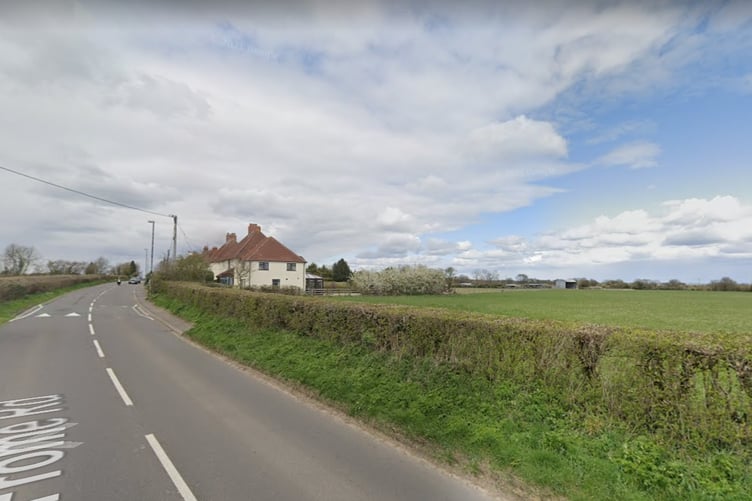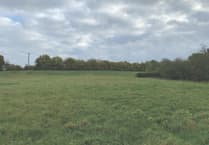Plans for 30 new homes in a small village near Frome are dead in the water after a second failed appeal.
Springleaze Trading Ltd. failed in its first attempt to build new homes on the B3110 Frome Road in Norton St. Philip when the Planning Inspectorate struck down its appeal in June 2022.
The Trowbridge-based developer put forward fresh proposals for the same number of homes, which were refused by Mendip District Council in September 2022 – prompting a fresh appeal by the developer.
The Planning Inspectorate has now thrown out the plans for a second time, arguing they would cause “significant harm to the character and appearance of the area”.
The site lies at the south-eastern edge of the village, between the existing homes on Frome Road and a site which has earmarked for a potential new primary school should the village require it.
While the sole vehicular access would have been from Frome Road, the developer had promised to provide a pedestrian link across the existing fields to link up with Tellisford Lane to the north.
Ten of the 30 new homes would have been affordable – meeting the council’s 30 per cent target for any new major development – and a community orchard would be provided at the southern edge of the site.
In submitting the appeal, the developer argued that the circumstances had “changed significantly” in light of the judicial review which saw five housing sites – including one within Norton St. Philip – struck from the Mendip Local Plan Part II.
Planning inspector C. Rose – who recently dismissed plans for a new camp-site near the M5 – visited the site on August 15 and published their ruling before Somerset Council’s planning committee east met in Shepton Mallet on November 7.
They said that the development amounted to building in the open countryside since it was outside of the defined boundary of Norton St. Philip – something which is only permitted in exceptional circumstances.
They said: “As the proposal includes a high percentage of open market housing and would not support the rural economy or community infrastructure, the
proposal does not meet any of the criteria to justify its location.
“The generally undeveloped and open nature of the existing paddocks, the application site and the larger field that it forms part of, make a considerable
contribution to the landscape and setting of the settlement providing a gentle
and gradual transition from built development to countryside on approach and
when leaving the settlement.
“The significant change in character would be noticeable and contrary to the linear pattern of built form when travelling through the area and through the
transitional zone between the built-up area of the settlement and the open countryside.”
The inspector applauded the amount of affordable housing which was promised, along with the commitment to delivering public open space, play areas and a community orchard within the site.
They also added that the proposal would “cause no significant harm” to local ecology, would not increase the risk of localised flooding and would not lead to a severe increase in traffic levels to and from the village.
Despite these factors, however, the inspector concluded that the development’s scale and location represented “significant harm to the
character and appearance of the area”.
They added: “The adverse impacts of granting permission would significantly and demonstrably outweigh the benefits when taken as a whole.”
Somerset Council has until mid-2024 to find alternative housing sites to make up the shortfall in the former Mendip area following the judicial review ruling.
Plans for 54 homes on Orchard Vale, one of the other sites which were struck out, were narrowly refused by councillors on November 7.
Daniel Mumby, Local Democracy Reporter





Comments
This article has no comments yet. Be the first to leave a comment.